Exploring Dutch Mobility: Our North American Colleagues Visit The Netherlands
Last month, our North American colleagues Matt Pinder and Jamie Arnau spent a week in Delft, the Netherlands, at Mobycon. During this week, Matt and Jamie immersed themselves in the Dutch approach to cycling, street design, and multimodal transportation. Besides Delft, they also explored The Hague, Den Bosch, Amsterdam, Haarlem, Utrecht, Rotterdam and Houten. Each city offered its own lessons on how to design streets and public spaces that truly put people (not cars) first. They hope to bring many of these new insights into their planning work in North America.
Getting Around
Throughout the week, Matt and Jamie visited multiple Dutch cities on tours organized by other colleagues. Matt was especially excited for his long-awaited journey to Houten. Though Houten is nothing special to the Dutch, it’s an inspiring example of the “unravelled network”, where cars are directed to a ring road to get around, and pedestrians and cyclists have direct routes everywhere. It definitely felt like a suburb (nothing too exciting going on), but the energy was very different from a North American suburb, with people of all ages out and about, mostly by bike. Cycling around Houten themselves, they had almost no interactions with cars, which inspired Matt and Jamie.
While other colleagues used the OV-fiets on the tours, Jamie used Mobycon’s in-house folding bike. As most standard bike-share fleets are designed for taller riders, Jamie appreciated having a bike that actually fit her. Being able to fold the bike and roll it onto trains and buses between cities made traveling effortless. It was Jamie’s first time using a folding bike. By the end of the trip, she was sold: a folding bike officially made it onto her Christmas list!
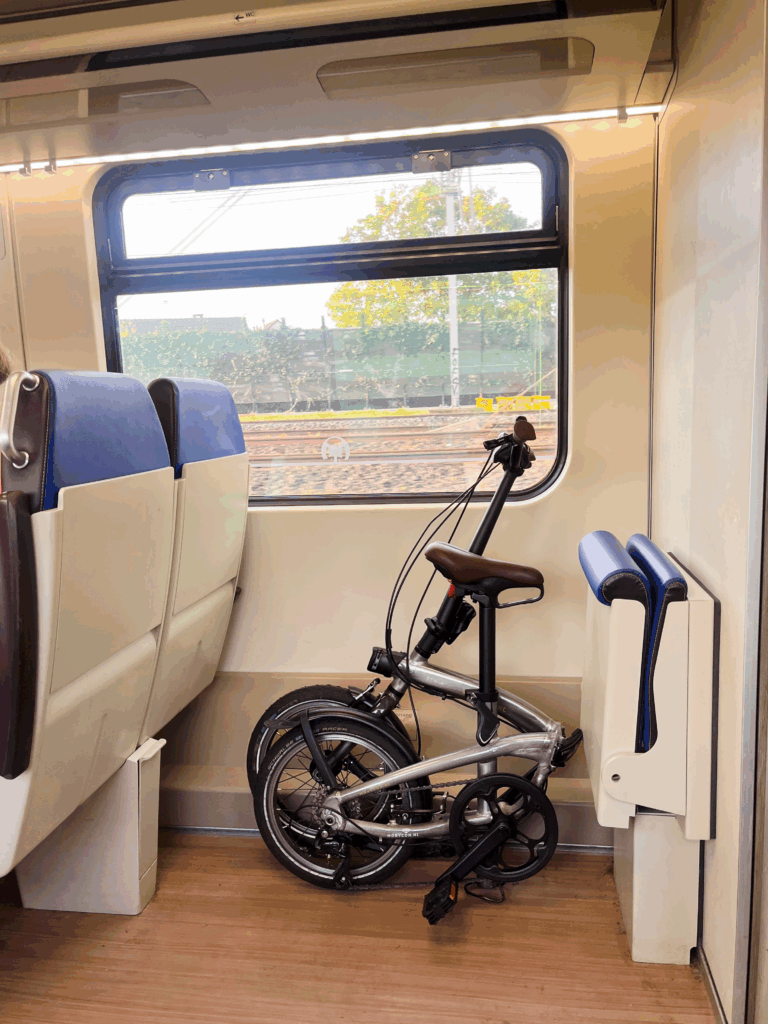
Bike Parking
Visiting multiple cities throughout the week, it was interesting to see how differently each city approaches bike parking, and how seriously the Netherlands treats it as essential mobility infrastructure. From staffed small-scale garages in The Hague and Haarlem, to the large underground parking facility at the Delft train station (offering parking for 7,700 bicycles), they got to experience all sorts of bicycle parking.
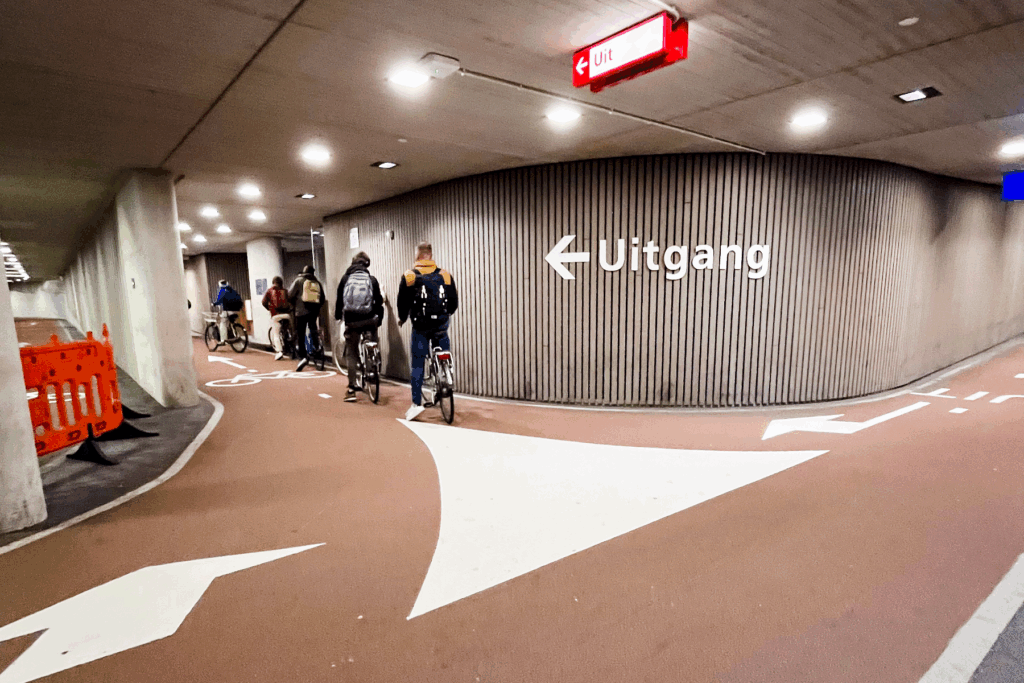
One of the parking facilities that stood out was in Utrecht. The bicycle parking garage at the central station is the largest in the world, with more than 12,500 spaces. Despite this massive capacity, it often reaches full occupancy. During rush hour, riders are queuing to get in and out.
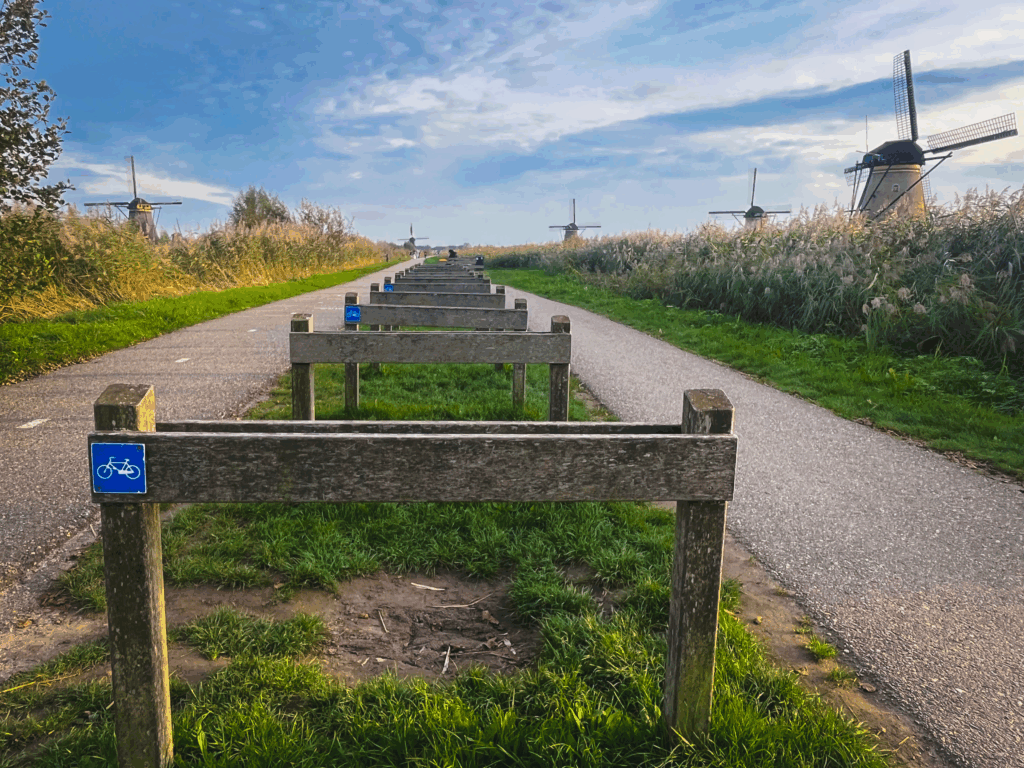
Another parking facility that stood out was in the Dutch countryside. Even at destinations farther out, such as the UNESCO World Heritage Site Kinderdijk near Rotterdam, bike parking is still considered a necessary amenity.
Myth: “That Could Never Work Here”
For Jamie, one of the most inspiring parts of their tours was seeing historic before/after photos. The Netherlands wasn’t always the cycling paradise it’s known as today. Many beloved plazas, corridors, and bikeways were once dominated by cars.
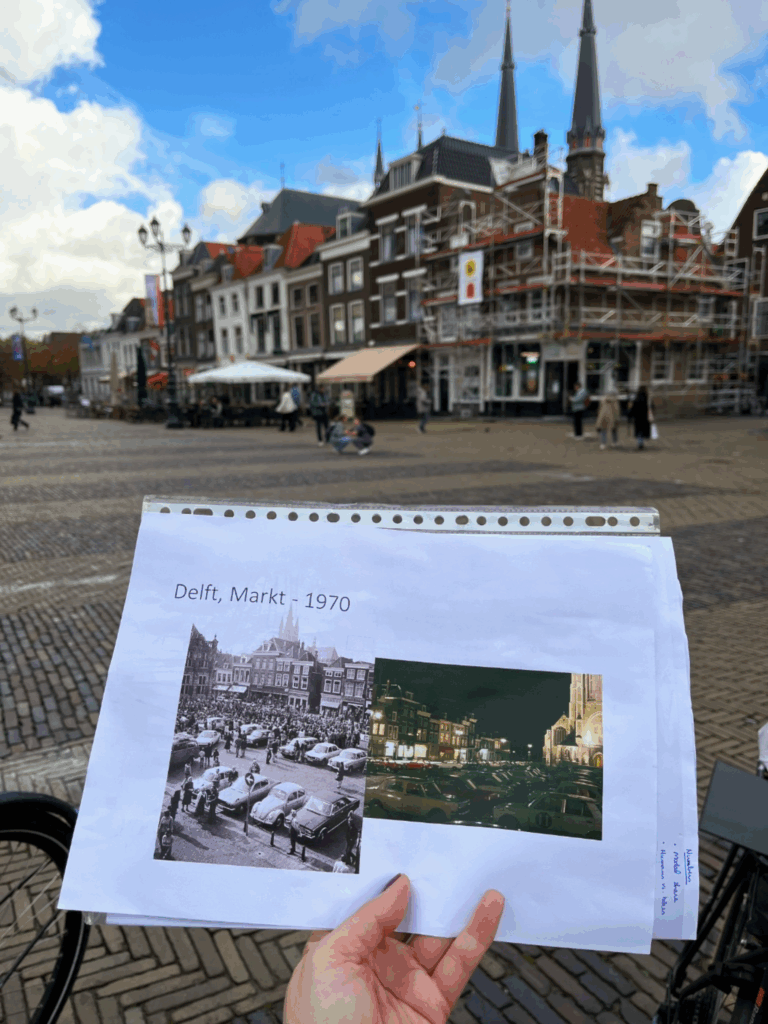
Delft’s central square was a parking lot until 2003. Strong leadership and community vision transformed it back into the city’s “living room”. Today, it’s hard to imagine anything but people, markets, and public life filling the space.
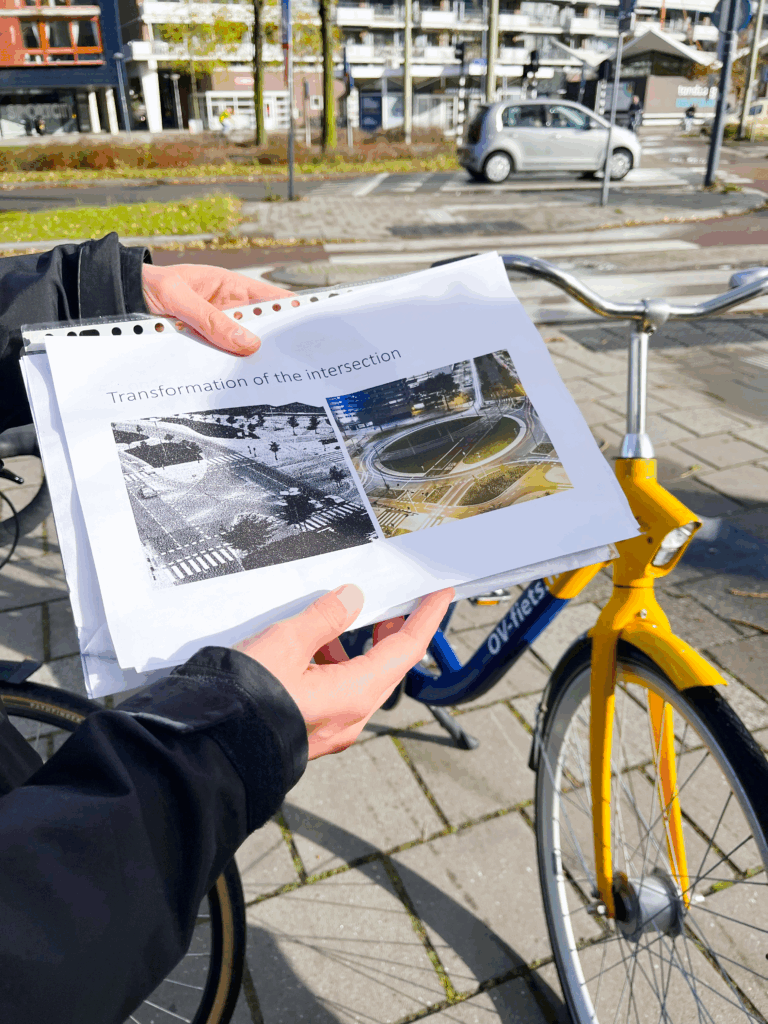
This roundabout between Delft Campus Station, the university, and the city center once had four- and six-lane roads. In 2009, it was redesigned into a single-lane roundabout. This improved capacity, integrated transit operations, and dramatically enhanced safety. A 2022 redesign further refined predictability and clarity with one-way cycle paths and more intuitive circulation.
These transformations show that dramatic change is possible, and that the phrase “that could never work here” is almost always a myth. Many Dutch cities faced the same skepticism that North American planners hear today.
Reflections Moving Forward
Both Matt and Jamie are feeling freshly inspired and energized to deliver innovative, practical solutions to their North American projects. Visiting different Dutch cities reminded them that great mobility doesn’t happen by accident. It’s the product of long-term commitment to safety, directness, comfort, attractiveness, and to the belief that streets should truly serve everyone. As Jamie put it:
“The Netherlands shows what’s possible when a country prioritizes people-first design at every scale, offering valuable lessons for communities in the U.S. that are working to redefine what transportation looks like for their communities in the future.”
Bonus “Points”
Matt and Jamie spent a lot of time in meetings with Dutch colleagues, getting to know them better and discussing how to advance common goals. With many North American projects underway, Matt had many technical challenges to raise in meetings with Dutch colleagues. These became launch points for discussing Dutch street design practices, traffic-calming measures that work, and how to prioritize cycling on a shared street. One of the highlights of the week, though, was the evening out, playing Jeu de Boules well into the evening with colleagues at a local bar in Delft.
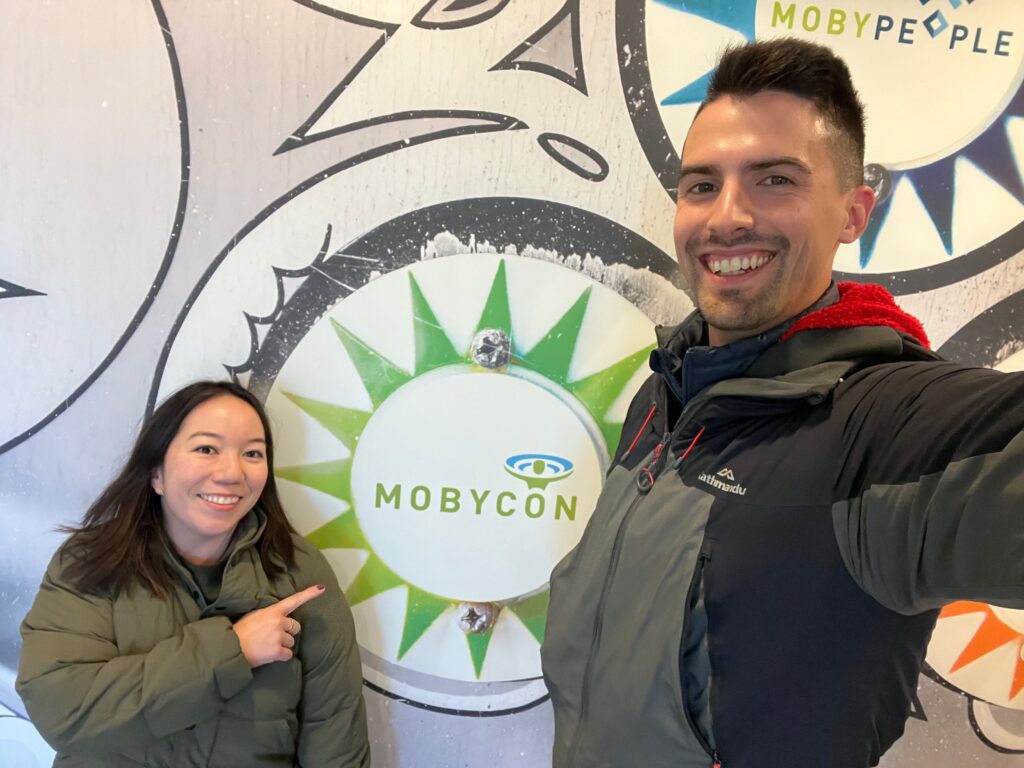
One bonus takeaway? Matt and Jamie spent the entire trip pointing at everything. Chicanes, planters, paving treatments, you name it. As Jamie said: “When you’re a planner, you can’t help noticing (and gesturing enthusiastically at) the details.”

